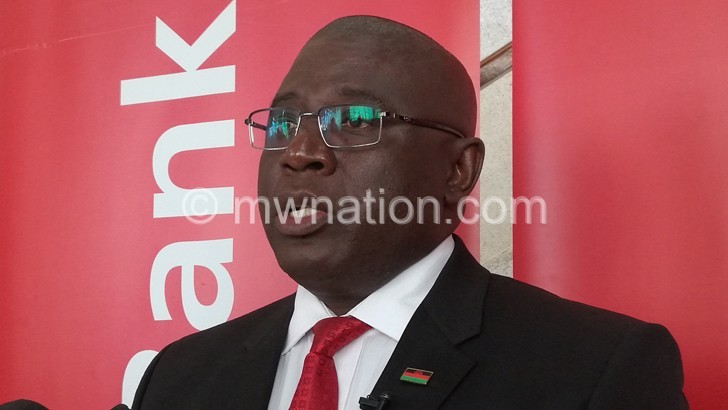Pension fund investments drop
Despite registering growth last year, pension funds investments return declined by 5.9 percent, published figures from the Reserve Bank of Malawi (RBM) showed on Wednesday.
The 2018 Financial Institutions Supervision Report shows that the fund achieved an investment return of 21 percent in 2018 compared to 26.9 percent in 2017 on account of a combination of a lower return on the Malawi All Share Index (Masi) and the low interest environment.

Assets of the pension sector, on the other hand, grew by 34.6 percent to K716.5 billion as at end December 2018 on account of growth in investment income and substantial growth in contributions following the registration of the Public Service Pension Fund.
The fund comprised 77 910 members and registered accumulated assets of K28.8 billion
“The return on Masi dropped to 34.2 percent in December 2018 compared to 62.1 percent in December 2017 and adversely affected pension funds since 38.1 percent of the pension fund assets were invested in listed equities.
“Similarly, pension funds held a significant proportion of their investments in interest sensitive assets, as a result, cumulative interest income declined slightly to MK45.1 billion in December 2018, down from MK46.7 billion in December 2017,” reads the report in part.
During the review period, annual pension contributions increased to K98.3 billion from K62.5 billion in 2017 due to growth in membership and general increases in pensionable emoluments.
Membership of the national pension scheme, on the other hand, increased to 406 068 in 2018 from 304 256 in 2017, largely following the inclusion of the newly-registered pension funds into the industry while pension contribution arrears rose to K13.1 billion from K9.9 billion in 2017, equivalent to 1.8 percent of total assets on account of contribution arrears amounting to K2.8 billion by newly-registered pension funds.
The asset portfolio was quite diversified during the year as it mainly comprised government securities, listed equities, unlisted equities, real estate and fixed deposits with investments in listed equities the highest asset class at 38.1 percent followed by government securities at 33 percent.
MSE chief executive officer John Kamanga said in an interview that with interest rates going down, there will be a portfolio shift into the capital market where the yields, in terms of capital gains as well as the dividend, could be higher, giving comparative advantage to the capital market to look very attractive compared to the money market.
“With interest rates going down, the capital market become lucrative in the sense that the yields are much better compared to the money market and that would lead to portfolio shift,” he said.
RBM Governor Dalisto Kabambe said in an accompanying report that in a quest to contribute to accelerating economic growth of the country, the bank will continue to undertake measures that will deepen the financial markets.
He said such measures, among others, include initiatives aimed at attracting new investments in banks and stock exchange, facilitating full scope operationalisation of the financial hub and modernizing the financial infrastructure.




